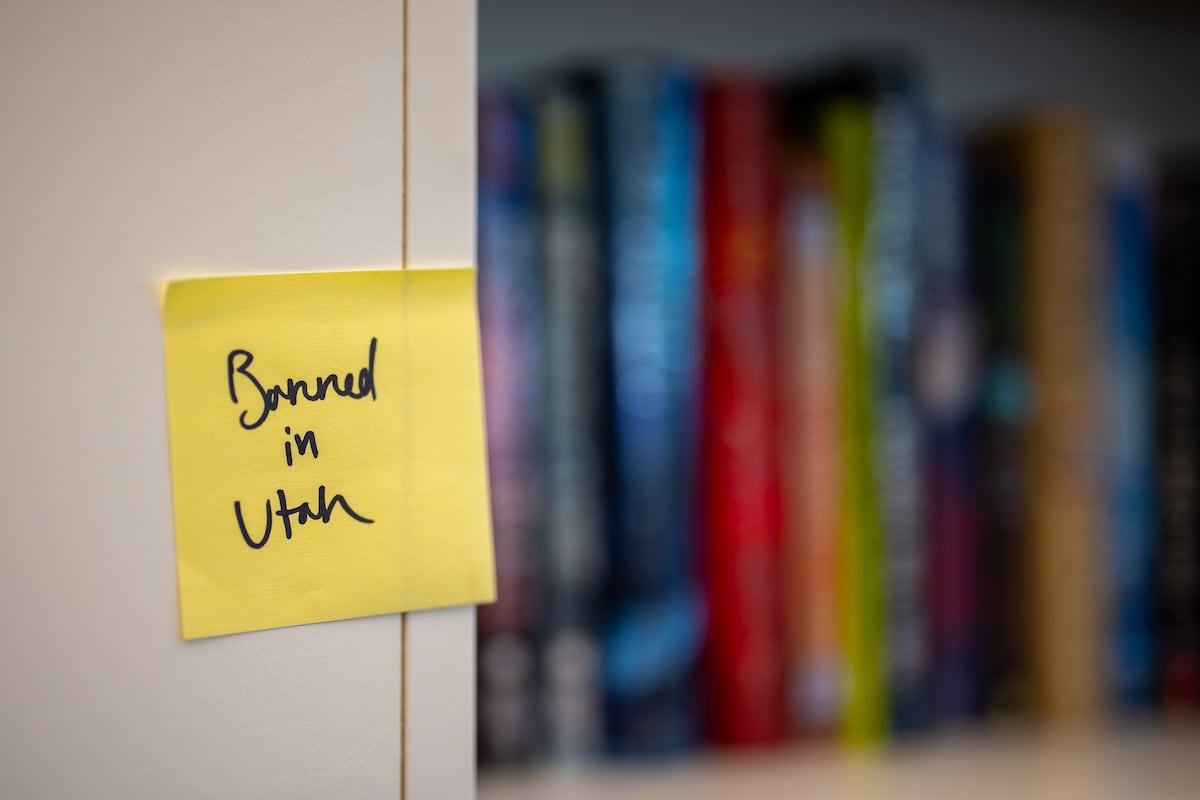The Utah state school board on Friday ordered the removal of 13 book titles from every public school in the state, in accordance with a new law passed earlier this year.
The list’s publication comes only weeks before the new school year will begin. Six of the 13 titles were written by the same fantasy romance author, Sarah J. Maas.
Districts and charter schools must now dispose of the following titles, according to the Utah State Board of Education, marking a historical first for the state.
These books are now banned from all Utah public schools:
-
“Blankets” by Craig Thompson.
-
“A Court of Frost and Starlight” by Sarah J. Maas.
-
“A Court of Mist and Fury” by Sarah J. Maas.
-
“A Court of Silver Flames” by Sarah J. Maas.
-
“A Court of Thorns and Roses” by Sarah J. Maas.
-
“A Court of Wings and Ruin” by Sarah J. Maas.
-
“Empire of Storms” by Sarah J. Maas.
-
“Fallout” by Ellen Hopkins.
-
“Forever” by Judy Blume.
-
“Milk and Honey” by Rupi Kaur.
-
“Oryx & Crake” by Margaret Atwood.
-
“Tilt” by Ellen Hopkins.
-
“What Girls Are Made Of” by Elana K. Arnold.
(Alastair Grant | Associated Press file photo) Canadian author Margaret Atwood — pictured here in 2019 — is the author of “Oryx & Crake,” one of the 13 books that the Utah State Board of Education announced on August 2, 2024, must be removed from public schools across the state.
How were the books banned statewide?
The books on this list had already been banned by select school districts or charters, but because of the new law signed by Gov. Spencer Cox in March, they will now be banned statewide.
The law, which went into effect July 1, requires that a book be removed from all public schools in the state if at least three school districts (or at least two school districts and five charter schools) determine it amounts to “objective sensitive material” — pornographic or otherwise indecent content, as defined by Utah code.
Since the law applied retroactively, school districts and charters were asked to reevaluate the books that they had already decided to ban before July 1 using the state’s new “objective sensitive material” criteria, a standard that did not exist before.
Once those reevaluations were completed, school districts submitted a list of the banned titles that they found met the new criteria to the Utah State Board of Education. Those submissions were then aggregated in a spreadsheet and the data was organized by book title, as well as district or charter, to determine which titles met the threshold, USBE officials said.
Under the law, USBE members may still decide to overturn a statewide ban for each title that met the threshold — an action board leadership will always to be able to take should more titles be subject to statewide removal.
To overturn a book’s statewide removal, “three or more” USBE leaders have 30 days from the moment a statewide ban is instituted to request that the material be placed on a board meeting agenda, so leaders can vote on the matter.
If no hearing is held, the statewide removal stands.
Moving forward, districts and charters must report any “objective sensitive material” that they decide to remove to USBE. Upon receiving those alerts, the state school board will notify districts and charters within 10 school days of any titles that meet the statewide removal threshold, as well as publish the titles to a public list on its website.
See which school districts originally banned the books:
Here is a breakdown of the individual school district book bans that led to the titles’ statewide removal, according to USBE.
Both Davis and Washington County school districts each banned all 13 titles included on Friday’s list.
Alpine School District and Nebo School District each banned seven of the titles on the statewide removal list.
Jordan School District banned six of the titles. And the Tooele County School District banned one.
Collectively, the individual bans led to the titles reaching the new threshold for statewide removal.
No charter schools had banned the books on the Friday list, according to USBE.

